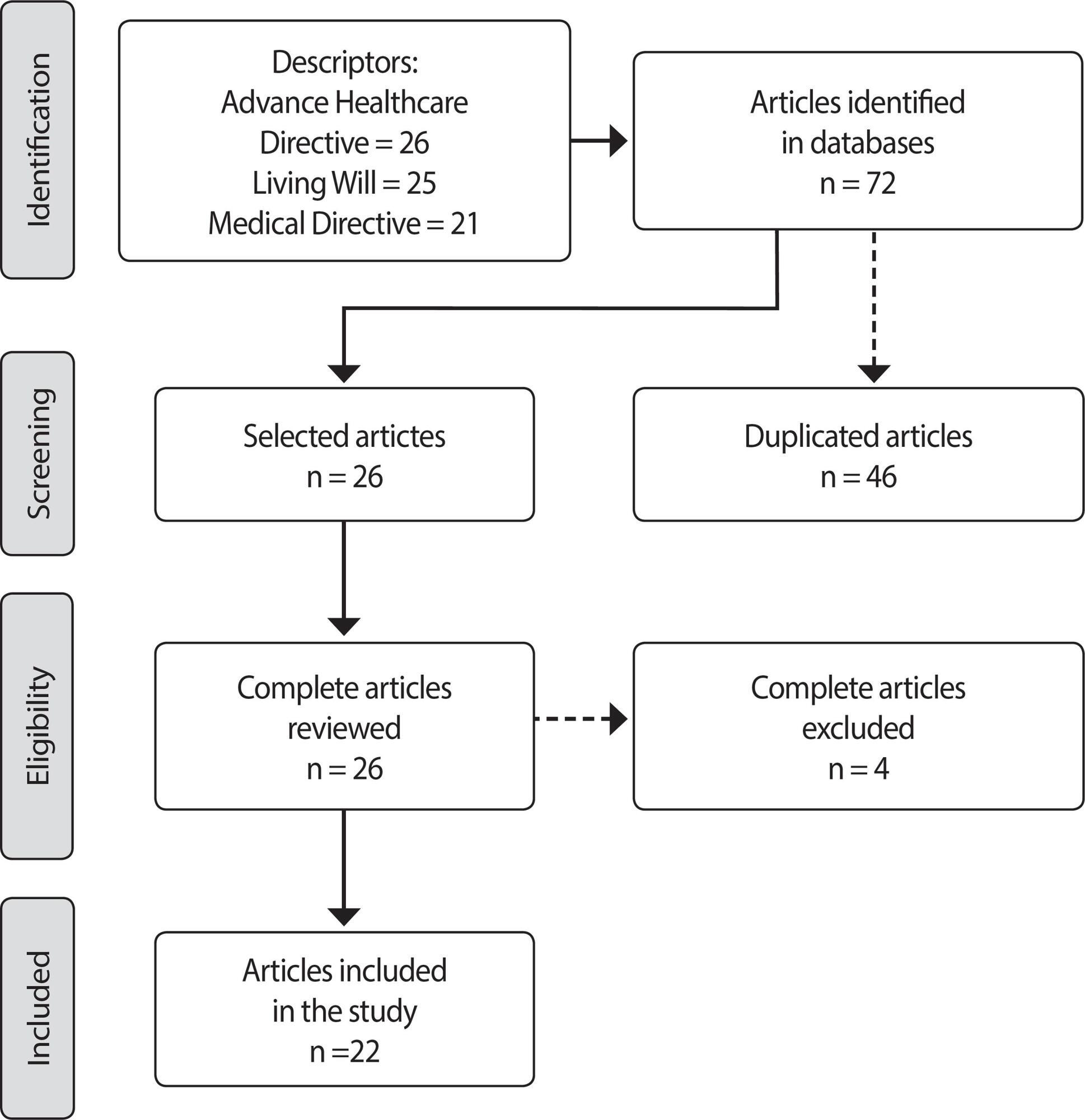-
REVISÃO
Approaches and reflexions on advance healthcare directives in Brazil
Revista Brasileira de Enfermagem. 2019;72(1):256-264
01-01-2019
Abstract
REVISÃOApproaches and reflexions on advance healthcare directives in Brazil
Revista Brasileira de Enfermagem. 2019;72(1):256-264
01-01-2019DOI 10.1590/0034-7167-2018-0347
Views0See moreABSTRACT
Objective:
to explain the approaches and discussions about the Advance Healthcare Directives spread among health professionals, lawyers and society.
Method:
bibliographic search in the databases SciELO, LILACS, BDENF, in Portuguese, carried out from December 2017 to January 2018.
Results:
22 articles were considered for analysis with interviews and testimonies of physicians, intensivists and geriatricians, nurses, technicians and Nursing auxiliaries, Medical students, lawyers and Law students.
Conclusion:
there is a small number of papers on the Advance Healthcare Directives in Brazil, and a wide range of approaches that have not yet been clarified. The theme is not widely spread and little clarified in its essence.

-
REVISÃO
Anticipated directives and living will for terminal patients: an integrative review
Revista Brasileira de Enfermagem. 2015;68(3):524-534
06-01-2015
Abstract
REVISÃOAnticipated directives and living will for terminal patients: an integrative review
Revista Brasileira de Enfermagem. 2015;68(3):524-534
06-01-2015DOI 10.1590/0034-7167.2015680321i
Views0See moreABSTRACT
Objective:
characterizing the national and international scientifi c literature about the advanced directives of living will as applied to the terminally ill patient.
Method:
integrative review considering the articles published in Portal Capes, SciELO, LILACS, MEDLINE, Journal of Bioethics and Bioethikos, with the descriptors: Advanced directives, Wills regarding life and Advance Directives, Living Will and Terminally Ill, totaling 44 articles submitted to content analysis.
Results:
three categories emerged: Students and professionals facing the advance directives of living will: Perceptions, opinions and practices; Patient’s receptivity to the Advance Directives of Living Will; The family facing the advance directives of living will.
Conclusion:
the relevance of the topic became evident as a guarantee of respect for the dignity and autonomy of the patient, as well as to reduce ethical confl icts faced by families and health professionals facing care at the end of life.



